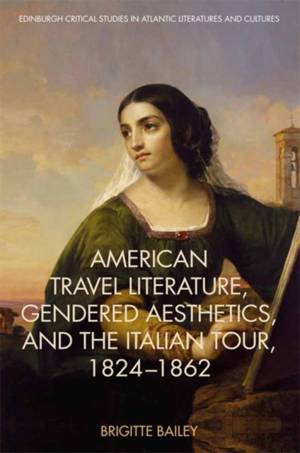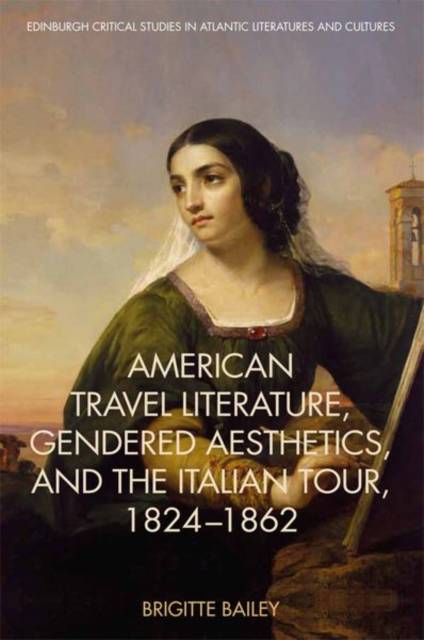
- Afhalen na 1 uur in een winkel met voorraad
- Gratis thuislevering in België vanaf € 30
- Ruim aanbod met 7 miljoen producten
- Afhalen na 1 uur in een winkel met voorraad
- Gratis thuislevering in België vanaf € 30
- Ruim aanbod met 7 miljoen producten
American Travel Literature, Gendered Aesthetics, and the Italian Tour, 1824-62
Brigitte BaileyOmschrijving
Examines tourists' aesthetic responses in the context of US nation formation
American Travel Literature analyses tourist writings about Italy from 1824 to 1862 to explain what roles transatlantic travel, aesthetic response and the genre of tourist writing played in the formation of the United States. The Italian tour and its textual and visual expressions were forms through which predominantly white, northeastern elites dreamed their way into national identity and cultural authority. Its interdisciplinary methodology draws on antebellum visual culture, tourist practices and shifting class and gender identities to describe tourism and tourist writing as shapers of an elite (and then normative) national subjectivity. Bringing perspectives from art history and aesthetics, it historicises aesthetic practices, illuminating the depth of Americans' turn towards visual iconography in articulating social and national identities.
The book investigates tourists' triangulations of the categories of 'England', 'Italy' and 'America', discusses authors understood as national representatives - Irving, Cooper, Sedgwick, Kirkland, Fuller, Hawthorne and Stowe - in the context of other US and European writers and artists and looks at transatlantic tourist writing as a significant genre of the period that shaped the nation.
Key Features
The interdisciplinary approach pushes analysis of growing area of travel writing furtherThe trope of Italy as a woman reveals how gendered patterns of thought and response processed concepts of national identity thus recognising gender as a crucial mode of perceptionHistoricizes aesthetic practices by looking closely at a particular genre (tourist writing) and its social functions in the antebellum period
Specificaties
Betrokkenen
- Auteur(s):
- Uitgeverij:
Inhoud
- Aantal bladzijden:
- 336
- Taal:
- Engels
- Reeks:
Eigenschappen
- Productcode (EAN):
- 9781474432832
- Verschijningsdatum:
- 27/03/2018
- Uitvoering:
- Hardcover
- Formaat:
- Genaaid
- Afmetingen:
- 160 mm x 236 mm
- Gewicht:
- 544 g

Alleen bij Standaard Boekhandel
Beoordelingen
We publiceren alleen reviews die voldoen aan de voorwaarden voor reviews. Bekijk onze voorwaarden voor reviews.











